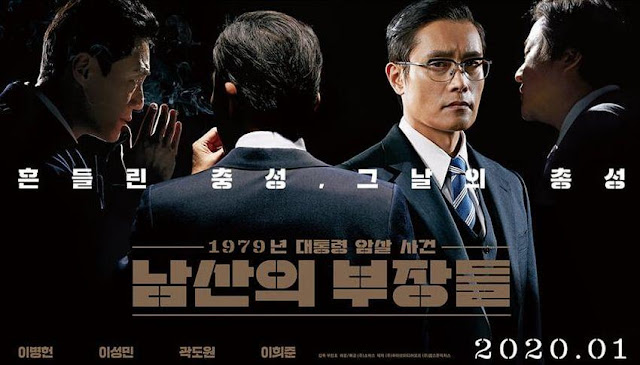The Next Man Standing
Pupule rating: 3.8
Consolidated Pearlridge West
Nondescript movie poster. Not a single rating on Rotten Tomatoes for reference. I walked into this blind, buoyed only by my faith in Korean cinema. What? This is a historical reenactment? About what, I didn’t know. But it covers a span of time that is largely forgotten, probably, by the history books of South Korea. Conservative ez-military leaders running a so-called democracy into a dictatorship.
I’m often a fan of throwback films. This was all internal politics and suits, in a setting that included the president eating lightly. Lots of banchan. Eat up, prez, don’t waste all that good kimchi. This film is so pointed and tunnel visioned that we never get anything more than a very occasional mention of war stories or humor or personal effect and habits. When the one man who begins to run counter to the leadership direction, his only real tic is that he sometimes pats down his hair even though it’s short and always in place. (We see later that the real-life ex-general had longer hair.)
The magic of sitting in a theater without any expectations is that it is impossible for a cheapskate to leave after 2-3 minutes. If this ends up on TV, viewers might be inclined to change channel. But this is another deftly-told work of master storytelling. In one way, it is like 1982, another historical anecdote that played out on the big screen with a heavy dose of artistic license.
The power of The Next Man Standing boils down to something this simple: what did we fight in the revolution for? A mostly forgotten chapter becomes a gripping piece of cinema here. How can one man stop evil? It is as stylistically different as it can get from other current fare like Bad Boys for Life, but both movies are essentially character driven.
I had this thought during the film: no wonder the families of some of my friends left South Korea and moved to the US in the early and mid 1970s. So much turbulence. So much danger. Riots. Protests. All of it became a part of who South Korea is today, but 40-plus years ago, not a great place for families with young children.

Comments